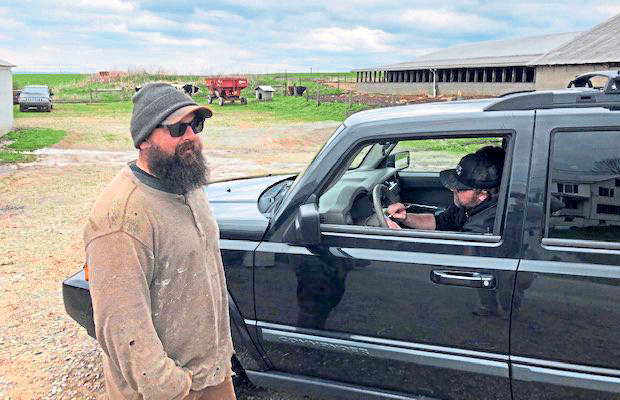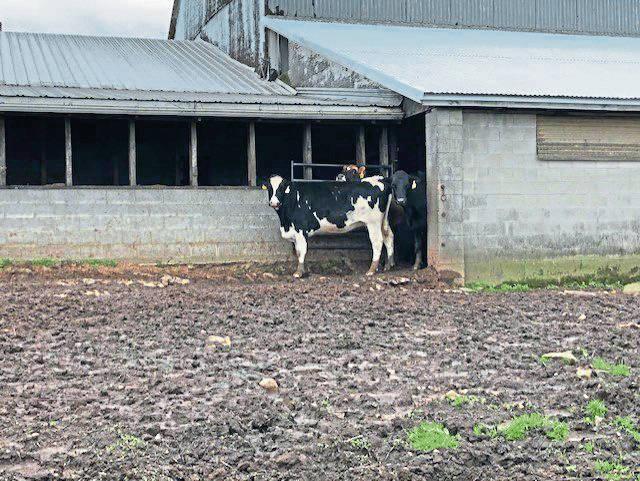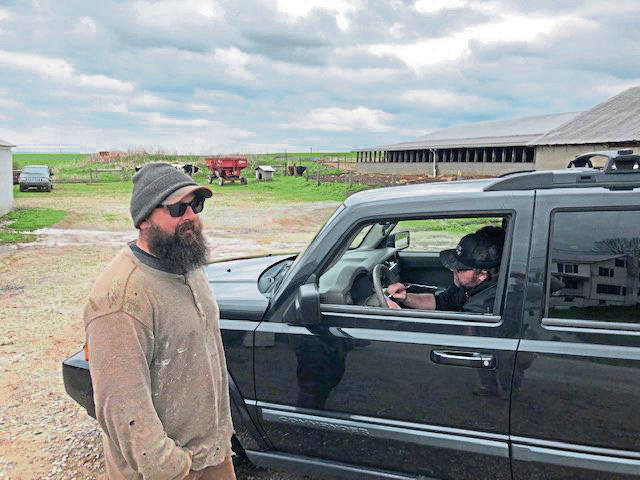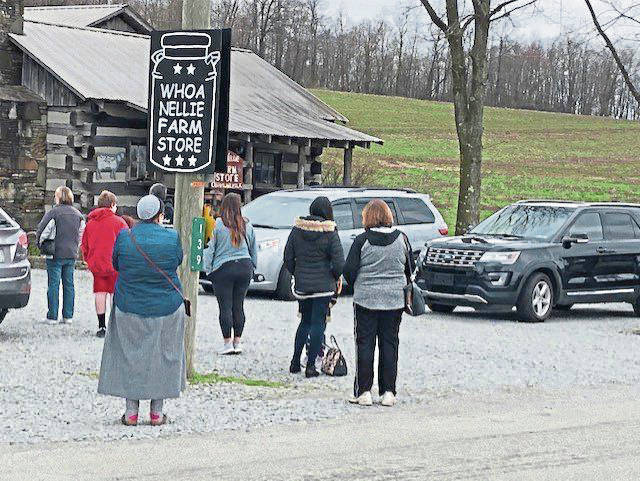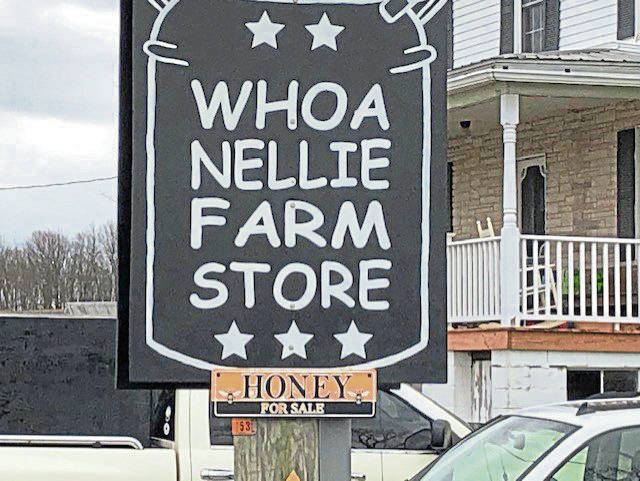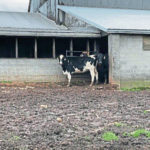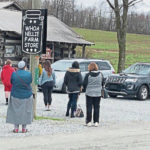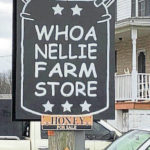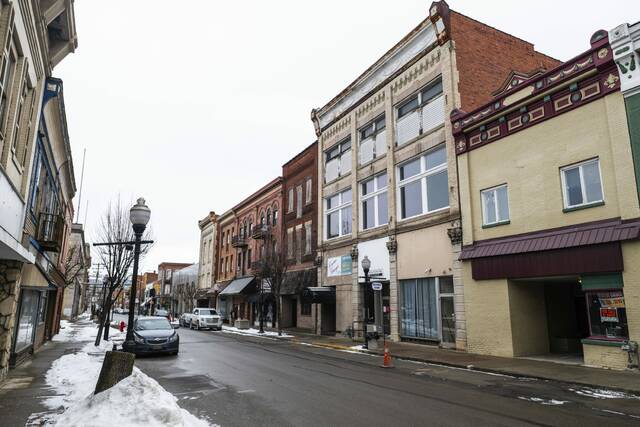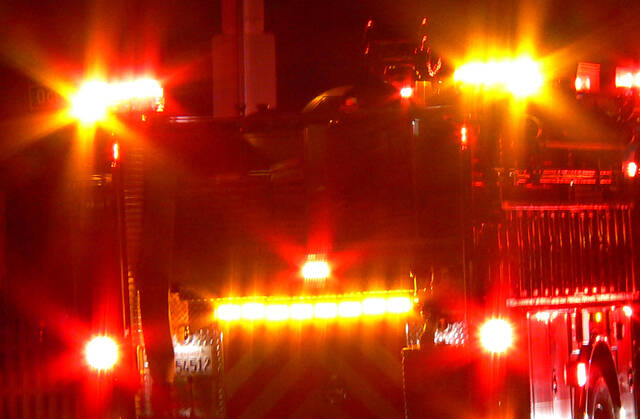Ben Brown said he was nervous Tuesday morning when he answered the telephone call from his wife, Mary Beth, as he was busy in the barn during a 24-hour shift pasteurizing milk on the family’s dairy farm in Fayette County.
“The farm store wasn’t supposed to open for another hour at noon, but Mary Beth called to tell me people were already lining up outside the door wanting to buy our milk. It was really nice,” Brown said.
“I told her, ‘We better open up the store right now,’ ” Brown said.
Brown said he was nervous because the Whoa Nellie Dairy along Bear Rocks Road, just beyond the Westmoreland County border in Bullskin Township, already had been dealt a blow Saturday when its longtime milk buyer, Schneider Dairy in the South Hills of Pittsburgh, said it did not have the usual market this week to sell the milk produced on the Browns’ 500-acre dairy farm.
“We have 200 cows, and 70 currently produce milk. What we don’t sell in the farm store, (Schneider’s) comes out and purchases what’s left over every other day. This runs through Sunday, so who knows what will happen,” Brown said.
“We’re talking about 12 milkings we would have to dump. … I just don’t want to do that,” Brown said.
Schneider Dairy did not immediately respond to calls Tuesday.
Brown said he and Mary Beth purchased the farm four years ago from Ben’s parents. He admitted the family is barely able to scrape by, and Saturday’s news was “tough” to take, putting him on edge.
“I don’t want us to go under. This farm has been in the Brown family since the 1700s,” he said.
The Browns posted a notice on social media that, although they only have equipment to pasteurize 30 gallons at a time, they planned to pasteurize milk around the clock, adding store hours and selling milk at the farm store.
“I hate waste, and I don’t want to dump milk. People can use it, and I still have to pay my bills,” Brown said.
The Browns’ message on the Whoa Nellie Dairy Facebook page was spread by fans throughout Fayette and Westmoreland counties. At noon Tuesday, cars and pickup trucks were lined 10 deep on both sides of rural Bear Rocks Road.
The line to get in the store was at least 20 customers deep. The customers were maintaining their social distance, staying at least 6 feet apart waiting to buy milk and other dairy products including cheeses, cottage cheese, sour cream, maple syrup and other products.
Among the customers were Linda and Tom Goodlin, who drove several miles from Scottdale. They were wearing protective masks as they took a place in line in mid-40 degree temperatures.
“I know their uncle, Larry Basinger, and we want to help the Brown family through this. We’re going to buy 10 gallons. I have orders from our whole family,” she said.
The state Department of Agriculture announced earlier this month that covid-19 has radically disrupted normal milk supply and demand, and some farmers have had to dump excess milk. Shannon Powers, press secretary for the Department of Agriculture, noted that a lot of contributing factors came in to play.
“Restaurants aren’t selling milk. Milk exports are down. Universities and schools that serve milk in pints and half-pints are closed,” Powers said.
She also said farms and processing plants, as well as food banks and pantries, don’t have enough refrigerated storage for the milk that is being produced.
“First and foremost, there is plenty of milk available, and milk is safe and healthy to drink,” she said.
Brown said he was told a major problem has been some grocery outlets were limiting how many gallons would be sold to individual customers.
“Those sales limits have got to stop,” Brown said.
The Department of Agriculture stepped in last week with major retailers, urging them to lift quotas.
It also asked people who see a store limiting milk sales to notify them.
Brown, who was still reeling from a 24-hour shift of pasteurizing and bottling milk, said he was not sure how many gallons he made to sell.
“I can tell you it’s in the hundreds of gallons. We’re also thankful people are willing to help us out,” Brown said, as he admired the line of customers waiting outside his farm store waiting to buy milk.
The store at 139 Bear Rocks Road is open from noon to 6 p.m. Tuesdays and Wednesdays and 10 a.m. to 5 p.m. Fridays and Saturdays.


